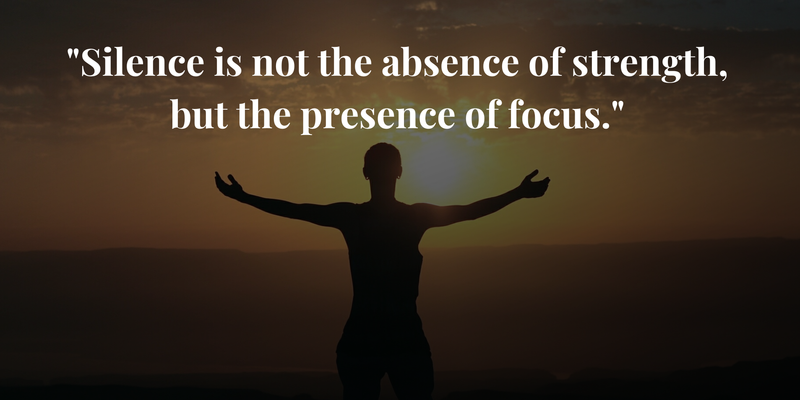Do you often feel like your voice gets drowned out in the noise? Maybe you’re the one who listens, who absorbs the energy of the room without feeling the need to dominate it. While the world around you seems to be constantly buzzing—at work meetings, social gatherings, or even online—there’s a unique strength in your quiet nature. If you’re an introvert, you’ve probably heard countless times that you need to “speak up,” “be more outgoing,” or “get out of your shell.” But what if the very traits that others deem too silent are the key to your power?
In a world that equates success with being loud and outgoing, quiet individuals are often undervalued. Yet, history has shown that some of the most influential and thoughtful leaders have been introverts who know how to harness their quiet energy to move mountains.
This article explores how you can thrive as a quiet person in a society that never stops talking.
Embracing quiet strength
Introverts and quiet individuals often possess qualities that the world needs more of—deep thinking, careful listening, and the ability to reflect before acting. These traits are advantageous in today’s fast-paced world, where impulsivity is often mistaken for decisiveness. Quiet power is rooted in self-awareness and emotional intelligence, allowing introverts to make calculated decisions rather than reacting to every situation.
Examples of quiet leadership
- Bill Gates: Known for his reflective nature and deep focus, Bill Gates is a prime example of how introverts can create massive change without needing to be the loudest in the room.
- Rosa Parks: Through her quiet courage, Parks profoundly impacted the Civil Rights Movement by refusing to give up her seat on a bus—a testament to the power of silent strength.
The listening advantage
One of the greatest advantages quiet people have is their ability to listen. Listening is an often underrated skill, yet it’s crucial in leadership, relationships, and teamwork. Quiet individuals are natural listeners, processing information more deeply and responding with thoughtfulness.
In contrast, people who talk constantly may miss subtle details or emotions, while quiet people pick up on these cues, leading to more meaningful connections. Listening also builds trust—when you listen to others, they feel valued and understood.
Cultivating quiet confidence
Confidence is not about being the loudest person in the room; it’s about being comfortable in your skin. Quiet confidence stems from knowing your strengths and using them effectively. While an extrovert might thrive in group discussions or public speaking, introverts can shine in one-on-one interactions, thoughtful written communication, or strategic decision-making.
Actionable tips for building quiet confidence
- Own your space: Walk into a room knowing you don’t need to compete with noise. Your value lies in your ability to observe, assess, and offer insights at the right moment.
- Leverage written communication: Introverts often excel in writing. Use email or written proposals to express your ideas clearly and thoughtfully.
- Set boundaries: Protect your energy. Quiet people often need time to recharge after social interactions, and setting boundaries helps you avoid burnout.
The art of saying “no”
One of the most powerful tools for quiet people is learning to say “no” effectively. When you constantly say “yes” to demands, you risk draining your energy. Saying “no” allows you to prioritise your well-being and focus on tasks where you can make a significant impact.
How to say no with confidence
Keep it simple: “I’m sorry, but I don’t have the bandwidth for this right now.”
Offer alternatives: “I can’t do this, but perhaps [Name] can help.”
Be firm but polite: “Thank you for thinking of me, but I have other commitments at the moment.”
Redefining Success as a Quiet Person
In a world that often equates success with being loud, it’s important to redefine what success looks like for quiet individuals. Success doesn’t have to mean being the centre of attention or constantly self-promoting. It can mean leading from behind, influencing others through your actions, or simply being an anchor of calm in a chaotic environment.
Reframing what success means
- Focus on impact, not visibility: It’s not about how many people hear you, but how many lives you touch.
- Celebrate small wins: Quiet progress is still progress. Every step forward, no matter how small, is a step in the right direction.
- Lead by example: You don’t need to shout to be a leader. Quiet leaders often lead through their actions, integrity, and thoughtful decisions.
Being quiet in a world that never stops talking can feel overwhelming, but it’s also your greatest strength. You don’t have to conform to the extroverted ideals of society to succeed. By embracing your quiet power, cultivating your confidence, and using your natural listening skills, you can thrive in any environment. Remember, it’s not about how loudly you speak—it’s about the impact you make when you do.
So, the next time someone tells you to speak up, know that your silence holds its own kind of power.










